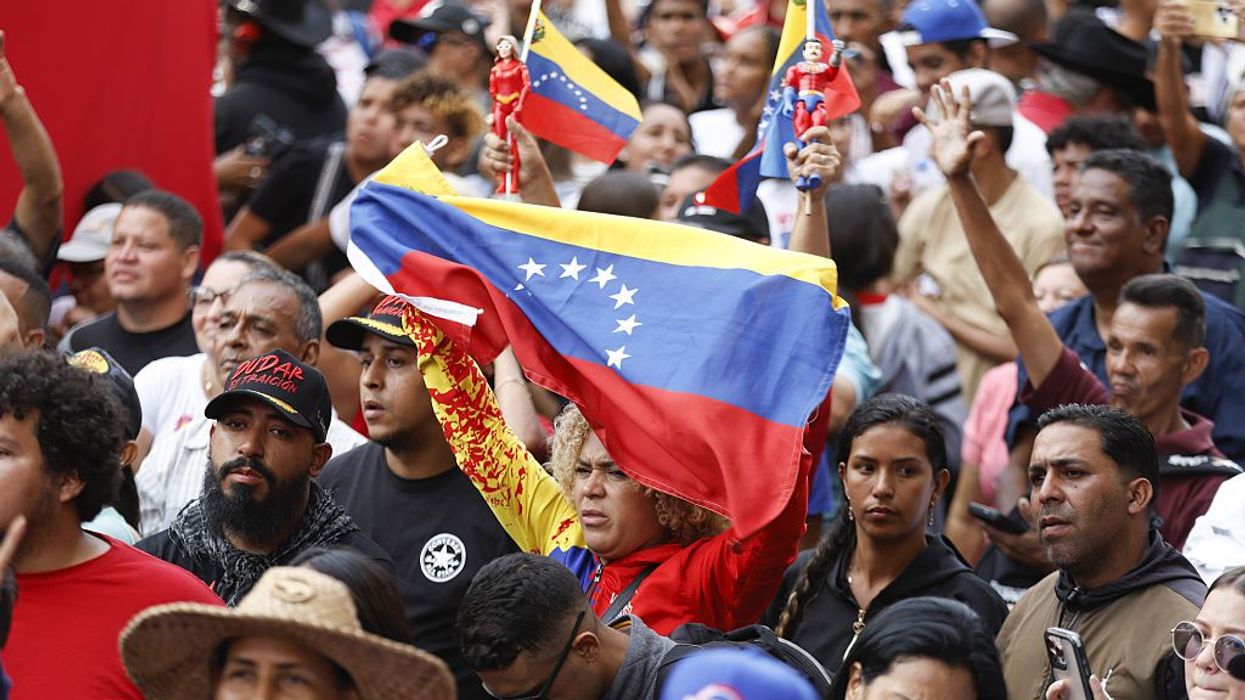July, 10 2012, 03:26pm EDT

Greece: Migrants Describe Fear on the Streets
New Government Should Act to Prevent, Punish Xenophobic Attacks
ATHENS
The Greek authorities are failing to tackle a rising wave of xenophobic violence that has left migrants afraid to walk the streets.
The 99-page report, "Hate on the Streets: Xenophobic Violence in Greece,"documents the failure of the police and the judiciary to prevent and punish rising attacks on migrants. Despite clear patterns to the violence and evidence that it is increasing, the police have failed to respond effectively to protect victims and hold perpetrators to account, Human Rights Watch found. Authorities have yet to develop a preventive policing strategy, while victims are discouraged from filing official complaints. No one has been convicted under Greece's 2008 hate crime statute.
"People coming from war zones are scared to go out at night in Athens for fear of being attacked," said Judith Sunderland, senior Western Europe researcher at Human Rights Watch. "The economic crisis and migration cannot excuse Greece's failure to tackle violence that is tearing at its social fabric."
In a country suffering a deep economic crisis, and after years of mismanaged migration and asylum policies, gangs of Greeks attack migrants and asylum seekers in central Athens and elsewhere in the country with frightening regularity, Human Rights Watch said.
Human Rights Watch interviewed 59 people who experienced or escaped a xenophobic incident, including 51 serious attacks, between August 2009 and May 2012. Victims of serious attacks included migrants and asylum seekers of nine nationalities and two pregnant women.
Most attacks take place at night, on or near town squares. Attackers work in groups, and are often dressed in dark clothing with their faces obscured by cloth or helmets. Some of them arrive and flee on motorcycles. Bare-fisted attacks are not uncommon, but attackers also often wield clubs or beer bottles as weapons. Most attacks are accompanied by insults and exhortations to leave Greece, and in some cases the attackers also rob the victims.
At least seven serious attacks in Athens and the island of Crete have been reported in the media since May alone. But untold numbers of attacks never make it into the news, Human Rights Watch found, including the case of Sahel Ibrahim, a 26-year-old Somali who served as a translator for Human Rights Watch.
Ibrahim was attacked on June 22 in Aghios Panteleimonas, a central Athens neighborhood where many assaults take place. He was chased down the street by five men he believes were in their early 20s and beaten with a heavy piece of wood. His hand was broken as he tried to protect his head during the attack.
Ibrahim says he would recognize his assailants, but he is fearful of going to the police because he is an undocumented migrant and does not believe it would do any good. "I don't believe they [the police] can help me," Ibrahim said. "They know the situation, they know all the problems. Why are they still sitting [around]? We need some rules. We need big steps. This country needs it, this country deserves it."
Human Rights Watch called on the new government of Prime Minister Antonis Samaras to take immediate steps to counter xenophobic violence, including:
- Showing leadership by publicly condemning xenophobic violence and indicating that there will be zero tolerance for vigilante violence against migrants;
- Deploying adequate police officers to known hot spots to prevent attacks and to arrest attackers in the act;
- Improving the investigation and prosecution of hate crimes by police and prosecutors through training, better guidelines, and a centralized police database;
- Ensuring that undocumented migrants never face the threat of detention or deportation for reporting a hate crime.
The European Union has an important role to play, Human Rights Watch said. EU institutions should closely analyze the phenomenon of xenophobic violence in Greece, and offer concrete assistance to Greek authorities, including financial and technical assistance, to help them address the problem.
A number of arrests in connection with recent attacks, including of alleged members of the far-right-wing party Golden Dawn, are a positive exception to the general rule of police inaction, Human Rights Watch said. Although police were instructed in a 2006 ministerial circular to pay special attention to racist crimes, victims consistently told Human Rights Watch that the police discouraged them from filing complaints.
Human Rights Watch found that some undocumented migrants who tried to report attacks were told by police they would be detained if they persisted in trying to have a criminal investigation opened. Told that an investigation would be pointless if they could not positively identify the attackers, encouraged to accept a simple apology, or told to fight back themselves, many victims of xenophobic attacks simply give up on seeking justice, Human Rights Watch found.
Those who persist are told they must pay a EUR100 feeto file an official complaint. Greece introduced this fee in late 2010 to discourage frivolous complaints. This fee should never be levied on those who report hate crimes, Human Rights Watch said.
No one has been convicted of a racist attack under a 2008 provision defining racist motivation as an aggravating circumstance in the commission of a crime. A landmark trial of two men and one woman for the stabbing of an Afghan asylum seeker, Ali Rahimi, began in September 2011. It has been postponed six times, and it is still unclear whether, at its next hearing, scheduled for September 2012, the prosecutor will push for the highest possible sentence because of racist motivation. The woman defendant ran unsuccessfully for office in the recent national elections on the Golden Dawn ticket.
Since the early 2000s, Greece has become the major gateway into the European Union for undocumented migrants and asylum seekers from Asia and Africa. Years of mismanaged migration and asylum policies and, more recently, the deep economic crisis, have changed the demographics of the capital city. The center of Athens, in particular, has a large population of foreigners living in extreme poverty, occupying abandoned buildings, town squares, and parks. Concerns about rising crime and urban degradation have become a dominant feature of everyday conversations as well as political discourse.
So-called citizens' groups have organized in certain areas to "protect" and "cleanse" the neighborhoods. One of these neighborhoods is Aghios Panteleimonas, in the very heart of Athens, where "citizens" locked a local playground, on a square right next to an imposing church, a few years ago to prevent foreigners from spending time there. The padlock is still on the gate.
Nationalist, far right-wing parties such as Golden Dawn have in recent years gained strength and popularity largely because of their exploitation of anti-immigrant sentiment. Having gained a seat on the Athens city council in 2010, Golden Dawn secured enough votes in the June 2012 national elections to enter Parliament for the first time. It will have 18 seats (out of 300).
Although no known police analysis or court ruling has linked the citizens' groups or Golden Dawn with groups carrying out violent attacks on migrants and asylum seekers, there is some evidence to suggest that the attackers are members of or associated with these groups. This evidence includes the affiliation of the defendant in the Rahimi case and the arrest of Golden Dawn members on suspicion of involvement in several attacks.
Government statistics on hate crimes are wholly unreliable, Human Rights Watch said. In the entire country, the Greek government reported just two hate crimes in 2009, and only one in 2008. In May, however, Human Rights Watch was told by a Greek official that nine cases in Athens from 2011 were under investigation as possible hate crimes. Non-governmental organizations and media reports help to provide a fuller picture. A monitoring network of nongovernmental organizations coordinated by the United Nations Office of the High Commissioner for Refugees and the independent National Commission for Human Rights recorded 63 incidents between October and December 2011 in Athens and Patras.
"Attacks on migrants and asylum seekers are intended to send a message: you are not wanted here, go away," Sunderland said. "To stop this violence, the state needs to send an equally powerful message: xenophobic violence has no place in a democratic society, and you will be punished."
Human Rights Watch is one of the world's leading independent organizations dedicated to defending and protecting human rights. By focusing international attention where human rights are violated, we give voice to the oppressed and hold oppressors accountable for their crimes. Our rigorous, objective investigations and strategic, targeted advocacy build intense pressure for action and raise the cost of human rights abuse. For 30 years, Human Rights Watch has worked tenaciously to lay the legal and moral groundwork for deep-rooted change and has fought to bring greater justice and security to people around the world.
LATEST NEWS
After Trump Vow to Intervene, Kushner Linked to Paramount's Hostile Bid for Warner Bros.
"The correct option is neither Paramount nor Netflix buy Warner," said one antitrust advocate.
Dec 08, 2025
Paramount Skydance on Monday launched a hostile bid to take over Warner Bros. Discovery shortly after US President Donald Trump publicly expressed skepticism of Netflix's proposed deal to acquire parts of the media company—and pledged to intervene in the federal review process.
"It is a big market share, there’s no question about it," Trump said late Sunday of Netflix's proposed $83 billion purchase of Warner Bros. Discovery's (WBD) film studio and streaming business.
"I’ll be involved in that decision," the president added.
Hours after Trump's comments, Paramount CEO David Ellison—the son of billionaire GOP megadonor and close Trump ally Larry Ellison—announced the hostile bid to buy WBD, attempting to subvert the Netflix deal by taking an all-cash, $30-per-share offer directly to Warner Bros. shareholders.
Observers expressed alarm over the seeming coordination between the president and Paramount's chief executive as the fight over Warner Bros. escalates. Trump reportedly favored Paramount to win the bidding war for WBD, which owns CNN, HBO Max, and other major assets.
Axios reported Monday that "Affinity Partners, the private equity firm led by Jared Kushner, is part of Paramount's hostile takeover bid for Warner Bros Discovery, according to a regulatory filing."
"Affinity Partners was not mentioned in Paramount's press release on Monday morning about its $108 billion bid," Axios noted, "nor were participating sovereign wealth funds from Saudi Arabia, Abu Dhabi, and Qatar."
Ellison was reportedly at the White House last week urging the Trump administration to block Netflix's bid for WBD.
Speaking to CNBC on Monday, Ellison said that "we've had great conversations with the president about" Paramount—which controls CBS News thanks to a merger that the Trump administration approved—potentially becoming the owner of CNN, a frequent target of Trump's vitriol.
CNBC: Do you think the president embraces the idea of you being the owner of CNN given his criticism for that network?
DAVID ELLISON: Ah -- we've had great conversations with the president about this but I don't want to speak for him in any way, shape, or form pic.twitter.com/FdwBzfP3eO
— Aaron Rupar (@atrupar) December 8, 2025
Nidhi Hegde, executive director of the American Economic Liberties Project, said in response to Ellison's remarks that "the correct option is neither Paramount nor Netflix buy Warner."
"The president inserting himself in the deal is obviously problematic, regardless of the parties involved," said Hegde. "If Netflix’s Ted Sarandos, who Trump called a great person, finds a way to appease him, that is also not good!"
US Sen. Elizabeth Warren (D-Mass.) expressed similar concerns about Trump's potential corruption of the regulatory process. The proposed Netflix deal is expected to face a review by the US Justice Department's Antitrust Division, where top officials were recently ousted for "insubordination" amid criticism of agency leaders' corporate-friendly approach to merger enforcement.
"Is that an open invite for CEOs to curry favor with Trump in exchange for merger approvals?" Warren asked after Trump pledged to insert himself into the Netflix-WBD review process.
"It should be an independent decision by the Department of Justice based on the law and facts," added Warren, who called the Netflix-WBD deal "an anti-monopoly nightmare."
Keep ReadingShow Less
Top Brazilian Official Warns Trump of 'Vietnam-Style' Regional Conflict If He Attacks Venezuela
"The last thing we want is for South America to become a war zone," said Celso Amorim, chief foreign policy adviser to Brazilian President Luiz Inácio Lula da Silva.
Dec 08, 2025
A top Brazilian official is warning President Donald Trump that a US military attack on Venezuela could easily spiral out of control into a "Vietnam-style" regional conflict.
Celso Amorim, chief foreign policy adviser to Brazilian President Luiz Inácio Lula da Silva, said in an interview published on Monday by the Guardian that a US military strike on Venezuela would inevitably draw nations throughout Latin America into an armed conflict that would be difficult to contain.
"The last thing we want is for South America to become a war zone—and a war zone that would inevitably not just be a war between the US and Venezuela," he said. "It would end up having global involvement and this would be really unfortunate."
Amorim added that "if there was an invasion, a real invasion [of Venezuela]... I think undoubtedly you would see something similar to Vietnam—on what scale it’s impossible to say."
While acknowledging that Venezuelan President Nicolás Maduro is disliked by many other South American leaders, Amorim predicted that even some of Maduro's adversaries would rally to his side in the face of destabilizing military actions by the US government.
He also predicted that anti-US sentiment would surge throughout the continent in the event of an invasion, as there is still major resentment toward the US for backing right-wing military coups during the Cold War in Chile, Brazil, and other nations.
"I know South America," he emphasized. "Our whole continent exists because of resistance against foreign invaders."
The Trump administration in recent weeks has signaled that it plans to launch attacks against purported drug traffickers inside Venezuela, even though reports from the US government and the United Nations have not identified Venezuela as a significant source of drugs that enter the United States.
The administration has also accused Maduro of leading an international drug trafficking organization called the Cartel de los Soles, despite many experts saying that they have seen no evidence that such an organization formally exists.
Trump late last month further escalated tensions with Venezuela when he declared that airspace over the nation was "closed in its entirety," even though he lacks any legal authority to enforce such a decree.
The Washington Post reported on Monday that Maduro is remaining defiant in the face of US pressure, as he is refusing to go into exile despite the threat of an attack on his country.
According to the Post's sources, Maduro's inner circle of allies "shows no signs of imminent collapse," even as he has limited his public appearances and beefed up his personal security amid fears that he could be the target of an assassination attempt.
Keep ReadingShow Less
Mike Johnson Touts $901 Billion Military Budget Plan After Gutting Medicaid, SNAP
"At such a time, bipartisan agreement to provide additional funds to the Pentagon would deliver a cruel message to the American public," advocacy groups warned.
Dec 08, 2025
Republican congressional leaders unveiled a sprawling military policy bill late Sunday that would authorize $901 billion in US military spending for the coming fiscal year, just months after GOP lawmakers and President Donald Trump pushed through the largest-ever cuts to Medicaid and federal nutrition assistance.
House Speaker Mike Johnson (R-La.), who aggressively pushed cuts to Medicaid by peddling false claims of large-scale fraud, touted the 3,086-page National Defense Authorization Act (NDAA) as legislation that would "ensure our military forces remain the most lethal in the world."
The bill, a compromise between House and Senate versions of the annual legislation, would authorize $8 billion more in US military spending than Trump asked for in his 2026 budget request.
If passed, the 2026 NDAA would pump billions of dollars more into the Pentagon, a cesspool of the kinds of waste, fraud, and abuse that Johnson and other Republicans claim to be targeting when they cut safety net programs, stripping health insurance and food aid from millions. The Pentagon has never passed an independent audit and continues to have "significant fraud exposure," the Government Accountability Office said earlier this year.
"The surge in Pentagon spending stands in sharp contrast to the drastic cuts in healthcare and food assistance programs imposed by the reconciliation package."
Final passage of the NDAA would push total military spending authorized by Congress this year above $1 trillion, including the $150 billion in Pentagon funds included in the Trump-GOP budget law enacted over the summer.
Last month, as Common Dreams reported, a coalition of watchdog and anti-war groups implored Congress not to approve any funding above the originally requested $892.6 billion, warning that additional money for the Pentagon would enable the Trump administration's lawless use of the military in US streets and overseas.
The groups also noted that "the surge in Pentagon spending stands in sharp contrast to the drastic cuts in healthcare and food assistance programs imposed by the reconciliation package."
"At such a time," they wrote in a letter to lawmakers, "bipartisan agreement to provide additional funds to the Pentagon would deliver a cruel message to the American public, one out of step with Democratic messaging over healthcare, reconciliation, and the shutdown."
Keep ReadingShow Less
Most Popular


